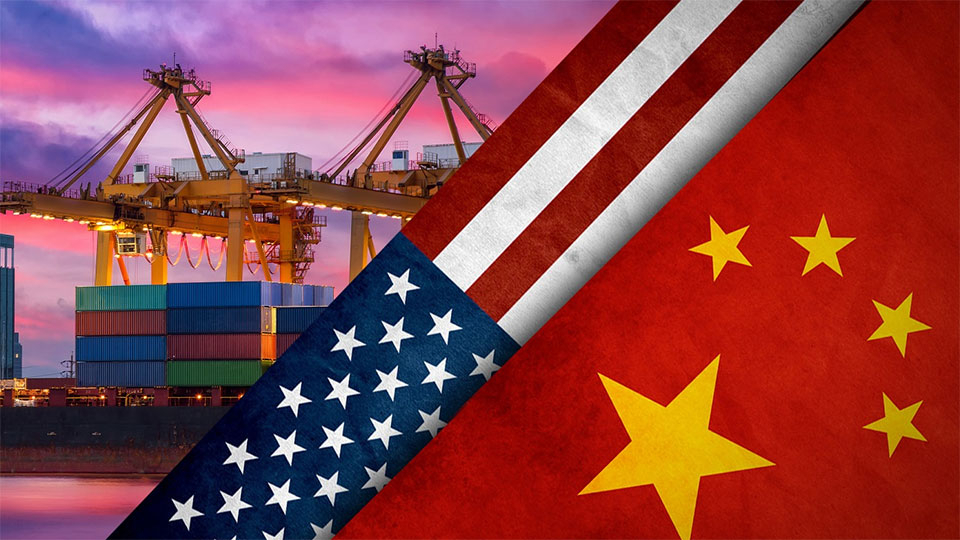
File photo
U.S. President Donald Trump famously tweeted, "Trade wars are good, and easy to win."
However, the upcoming trade deal that Trump and Chinese Vice Premier Liu He are expected to sign on Wednesday is only a victory for common sense – the two sides have agreed to stop bashing each other over the head with ever-increasing tariffs, and find some areas of common interest.
Trump is calling this deal "phase one." The text has not been made public, but reportedly China will agree to buy U.S. agricultural products, make new commitments to improve intellectual property rights protections and liberalize its economy to some extent.
The U.S. in return has suspended plans for new tariffs on 160 billion U.S. dollars of Chinese imports of items such as smartphones.
The most contentious and intractable issues, related to the Chinese government's role in economy, will be delayed until after the U.S. presidential election.
The deal allows Trump to declare a win and a campaign promise fulfilled as he faces an impeachment trial in the Senate.
The public is distracted enough by the trial and events in Iran that they will have little time to scrutinize the deal or ask if the trade war was worth it.
Many people feel it was not. Scott Paul, president of the Alliance for American Manufacturing, told the Washington Post last month, "There's been a lot of disruption and pain, and there hasn't been a lot of progress on the most important issues."
David Dollar, a China expert at the Brookings Institution think tank in Washington, told the Guardian, "Trump's staff believed tariffs would be a win-win and there would be a boost for domestic firms as well as a hit to China, but the first thing just didn't happen. For the past year, U.S. manufacturing has been in recession and shedding jobs, despite the president's tweets to the contrary."
Brian Kuehl, co-executive director of the free-trade organization Farmers for Free Trade, told Fox News, "A 50-billion-U.S.-dollar agreement wouldn't make up for everything farmers have lost within the last two years, because China was buying about 26 billion U.S. dollar(s) in agricultural goods before the trade war began in 2017."
Despite the apparent lack of progress on the issues that White House National Trade Council director Peter Navarro cared most about, many Trump supporters will likely appreciate the president seems to be fighting for them.
Expecting voters to understand the details of economic policy is unrealistic, considering even the U.S. president seems to think countries with a trade surplus are "winning" and a trade deficit are "losing" and being "ripped off." (In fact, the key number is the volume of trade – if it is rising, both sides win.)
But such abstractions will matter little to farmers, who will greatly benefit in the short term from a huge boost in purchases from China.
Support for Trump among farmers has remained strong throughout the trade war, and extra money in their pockets will only help. In addition, Democrats in the presidential primaries have taken a tough stance on trade with China, and in on this issue don't offer farmers an alternative.
While it is good news that China and the U.S. are putting the brakes on their game of economic chicken, it is a shame that the destructive trade war went on as long as it did. It destabilized global markets and harmed the economic output of both countries.
In the end, both sides will have to go back to the negotiating table and work out a deal. As it was clear from the beginning, the U.S. can probably win greater market access in China and a more level playing field for its companies here, since this is the direction Chinese policy is going anyways.
It's hopeless to expect China to change its governmental and economic system to make it match the U.S. way of doing things. For one thing, both countries have fundamental philosophical differences on how to best run an economy. In addition, from China's perspective, its way of doing things is garnering excellent results, so why should it change to satisfy the country that almost tanked the world economy in 2008? China maintains that specific complaints about government subsidies can be addressed through the World Trade Organization. Trump has abandoned multilateralism and seeks bilateral solutions to diplomatic and trade problems.
Trump did bolster his image as a brawler for his constituents, which may help his electoral prospects. It remains unclear whether this will be offset by the general weakening of the economy the tariffs caused.
In the end, it appears that the economic textbooks are correct, and the China-U.S. trade war caused pointless and unnecessary losses on both sides for results that could have been agreed upon in the first place. Despite Trump's boast about trade wars being good and easy to win, in the end, we are back where we started, only poorer.


